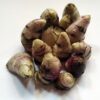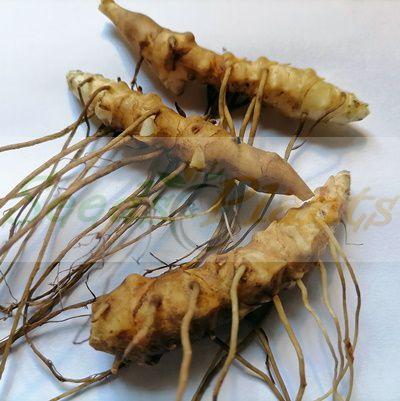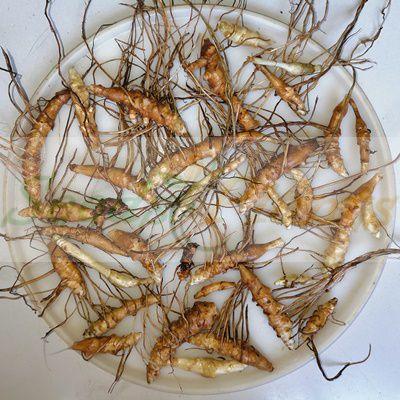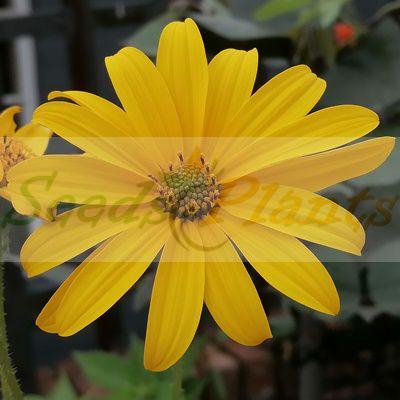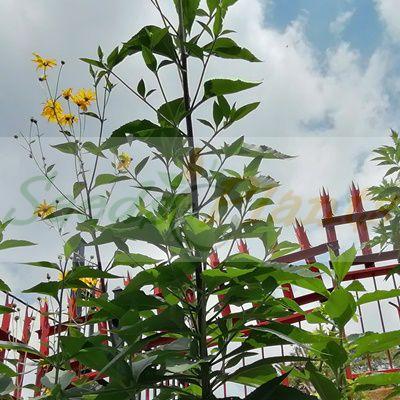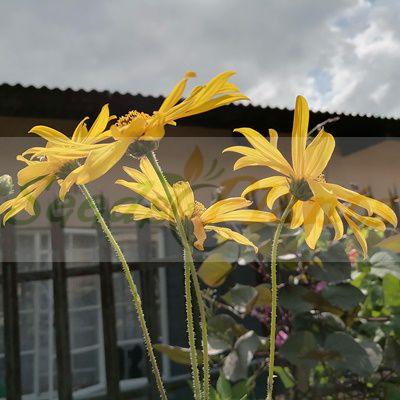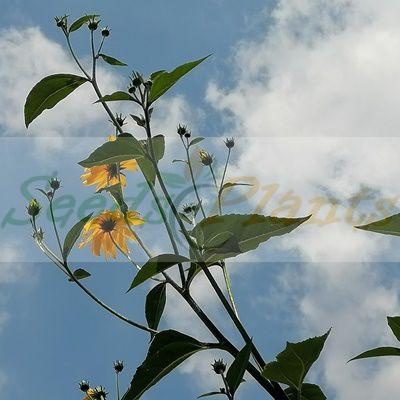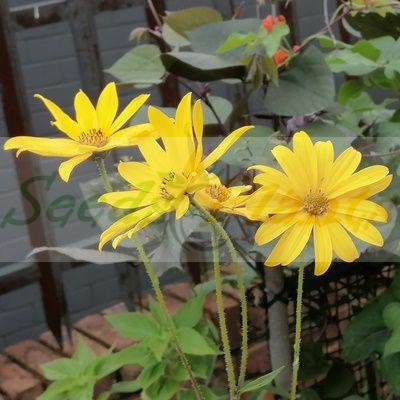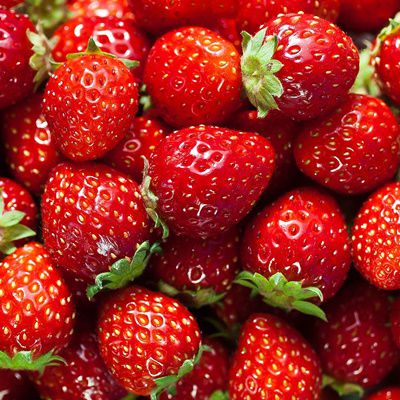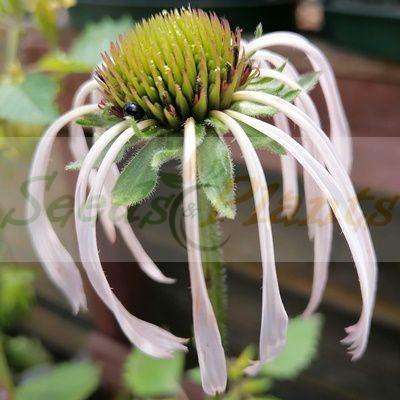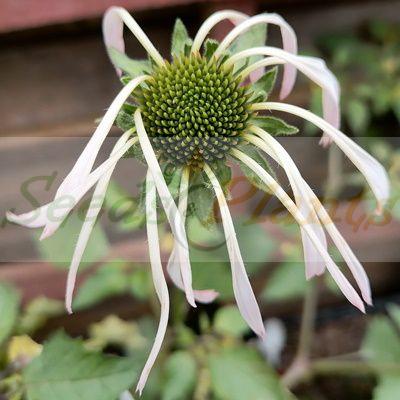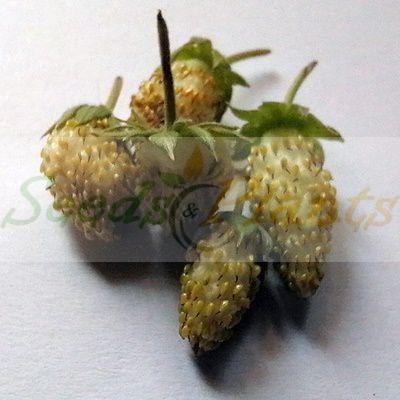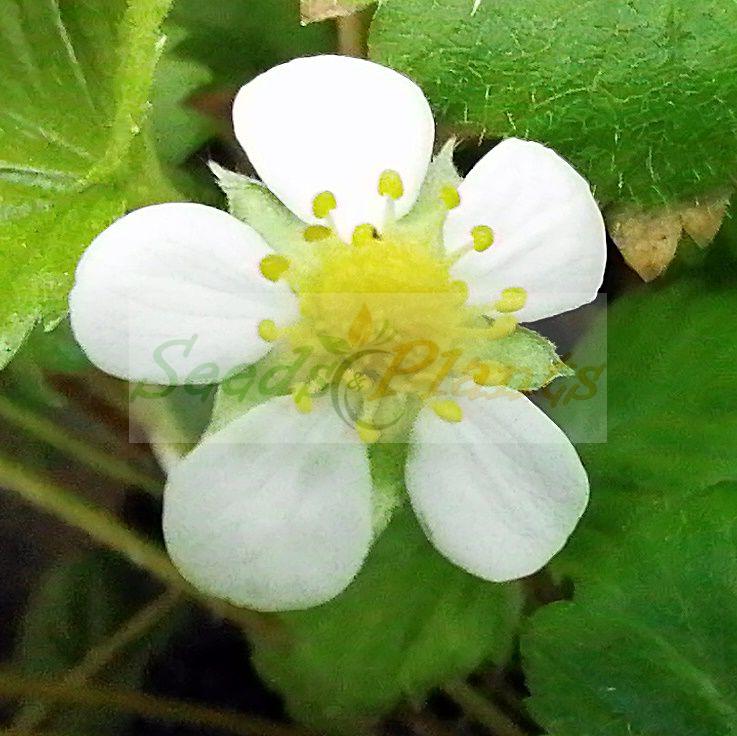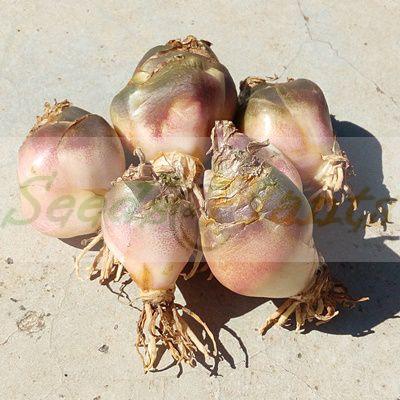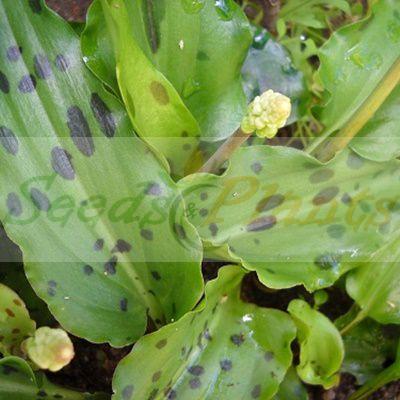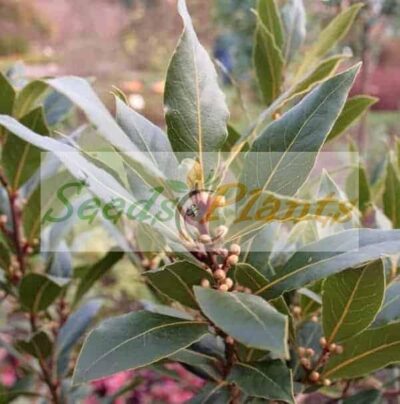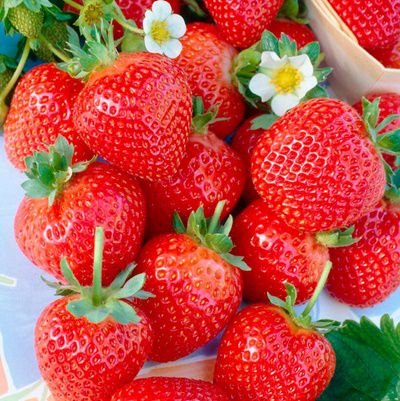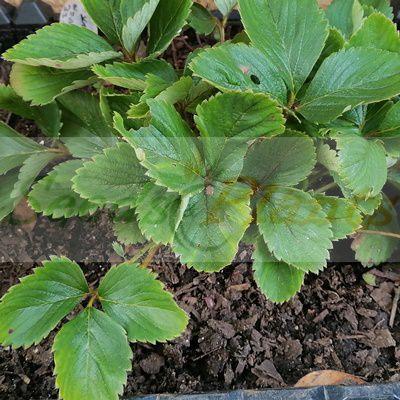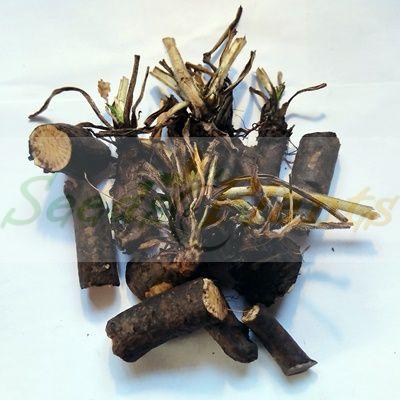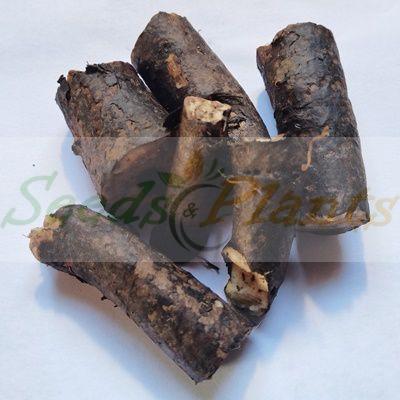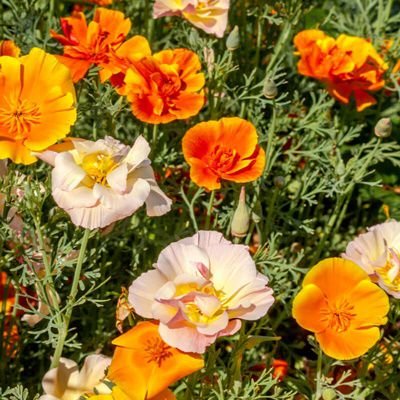Jerusalem Artichoke Tubers – 3 Tubers
(Helianthus tuberosus)
R50.00
Each packet contains 3 small pieces of Jerusalem Artichoke root.
Planting Time: Winter.
Organic – Tubers harvested from our own plants.
Out of Stock
Email me when the product is back in stock.
Packed in soil. Sold as 3 Small Jerusalem Artichoke Tubers, as shown in the photos. Jerusalem artichoke, also called Sunchoke, or Sunroot is an herbaceous perennial root vegetable in the sunflower family. Its white flesh is nutty, sweet and crunchy, and is a good source of iron. The plant is usually grown from the tubers, but can also be grown from seed.
Planting Jerusalem Artichoke Tubers
Planting Time: Winter.
- It can be grown directly in the garden or in large containers. Please note that leaving just a small piece of root in the soil, will result in more plants and if you let the plant flower and go to seed, the seeds will produce more plants. Therefore it is important that you make sure that you plant the tubers in a permanent, dedicated spot in the garden.
- Choose a sunny planting site, where there is plenty of space, as these are large plants that can grow up to 2m in height.
- Can be grown in any soil, even poor soil.
- Yields are best if the tubers are planted in the ground, but it can also be grown in large containers.
- The best time to plant the tubers is in winter, but you can plant them before that as well. The planted tubers will start sprouting in Spring.
- Plant tubers horizontally, 10 – 15 cm deep, 30 cm apart, allowing 30 cm between rows. If growing in a container, plant one tuber per container.
- Keep watered in dry weather but avoid over watering. Waterlogged soil will rot the tubers.
- Earth up the stems when plants reach a height of 30 cm.
- In midsummer, remove flowers and cut back the plant to concentrate energy into developing tubers.
- Harvest Jerusalem artichokes as required from late autumn into winter.
Disclaimer
Medicinal Information:
All medicinal information on this website is for educational and informational purposes only and may not be construed as medical advice. The information is not intended to replace medical advice or treatment offered by healthcare professionals.
Seeds, Plants, Plant Cuttings, Geophytes and Dried Herbs:
In some countries and provinces, certain plants are deemed as invasive and are not allowed to be planted at all, whilst some plants are allowed to be grown only in certain areas or provinces. The onus is on you as the buyer to familiarize yourself with the regulations pertaining to your location, before purchasing any of our seeds, plants, plant cuttings, geophytes or dried herbs. We will not be held liable, should you purchase any seeds, plants, plant cuttings, geophytes or dried herbs. from us which are prohibited in your country or province.
Related products
California Mission Bells Poppy – 100 Seeds
(Eschscholzia californica ‘Mission Bells’)

